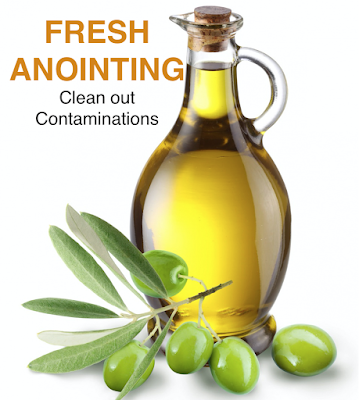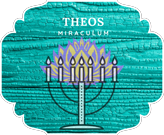Anointing with Oil
Psalm 23:5 (KJV)
5 Thou preparest a table before me in the presence of mine enemies: thou anointest my head with oil; my cup runneth over.
Original Definitions:
Anointest- To remove the ashes.
Head- as most easily shaken.
Dust, earth, ashes- symbols of mourning.
Note:
One of the tasks of the priests, in the Old Testament, was to never let the flame on the altar go out (The flame represents the presence of God). In the past time, they did not have coal, so they used wood. Since the altar burned day in and day out, night in and night out, the priest (on a daily basis) would have to go to the altar and scrape the ashes off. Furthermore, if they left the ashes there, the ashes were subject to put-out the fire and bring down punishment or judgement from God on them and on the entire camp. (Also read Joshua 8:31 and Deuteronomy 27: 5-6).
Numbers 4:13 (KJV)
13 And they shall take away the ashes from the altar, and spread a purple cloth thereon:
Isaiah 61:3 (KJV)
3 To appoint unto them that mourn in Zion, to give unto them beauty for ashes, the oil of joy for mourning, the garment of praise for the spirit of heaviness; that they might be called trees of righteousness, the planting of the Lord, that he might be glorified.
Note:
The Catholic Church uses the ashes on Ash Wednesday; however, that is a sign of mourning, as the bible indicates it. On the other hand, anointing with oil was used in traditional Indian medicine to remove illnesses. Finally, when we are anointed with oil, is to remove the spiritual ashes in order for the fire of the Lord to keep burning.


